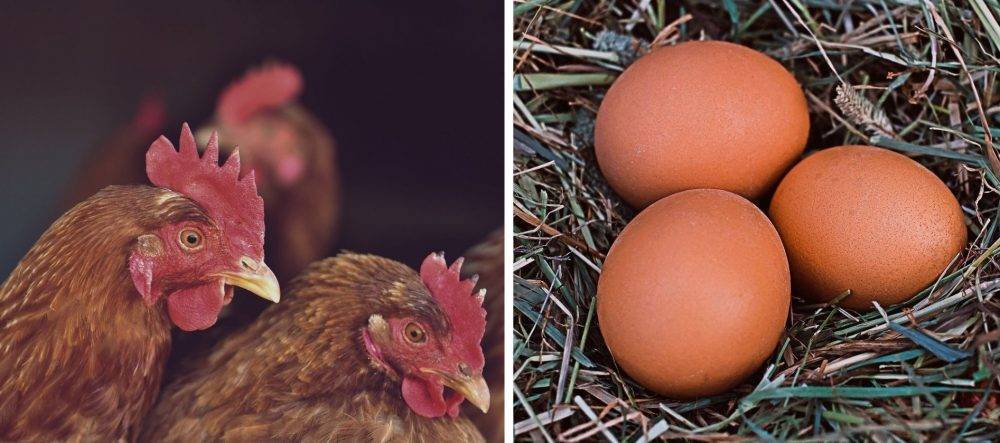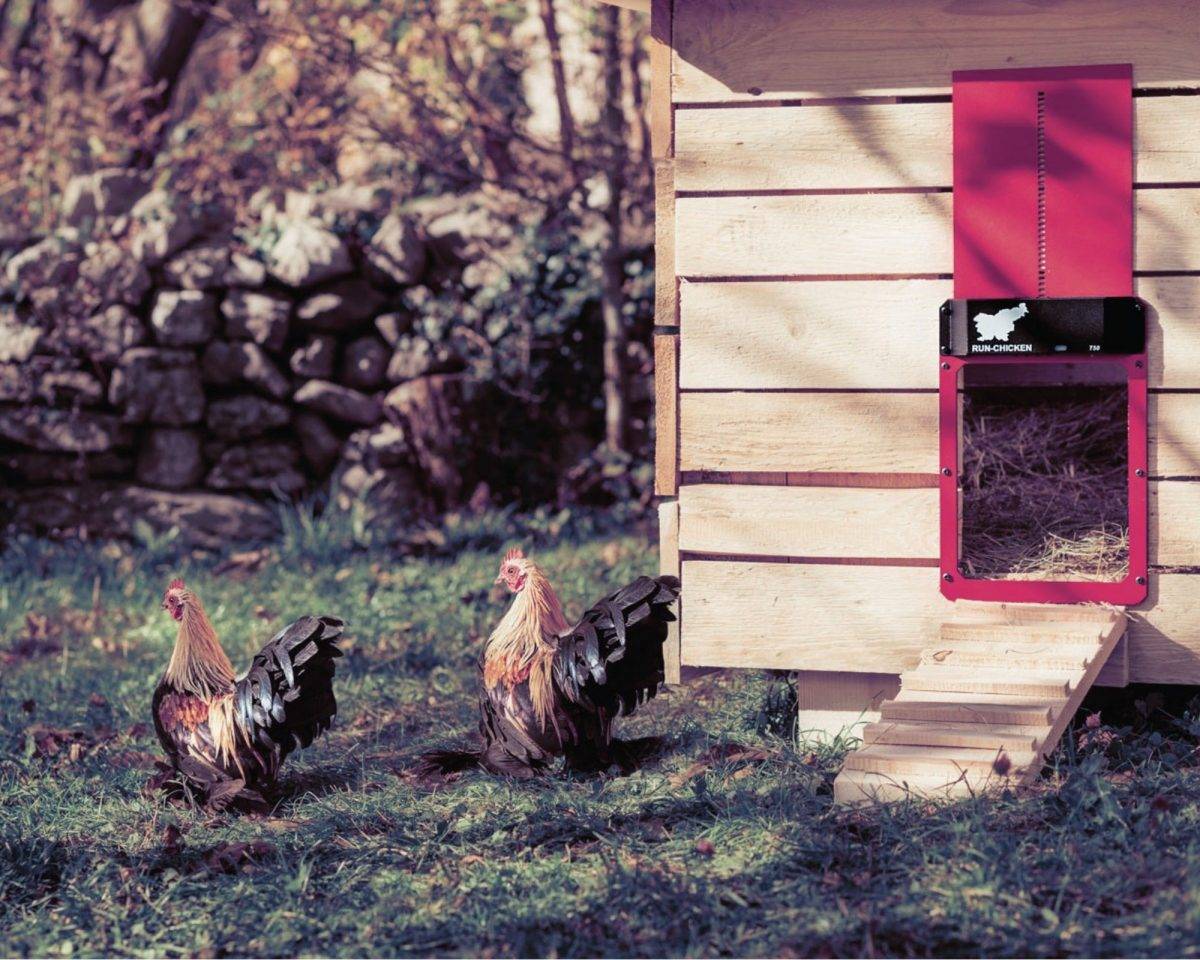Do you like fresh yummy chicken eggs? Do you want to get the most eggs you can from your chickens? Here’s how you can make your chickens feel safe, healthy, fit, and happy. Follow these 7 tips to help your chickens lay more eggs.
1. Choose the right chicken breeds
There are hundreds of chicken breeds in existence. All chickens lay eggs, have edible meat, and possess a unique appearance, but some breeds were selected and are used primarily to produce eggs. The breed of chicken you have can significantly impact the number of eggs you should expect to receive each day. Certain breeds, such as Japanese Bantams, tend not to lay eggs, whereas certain breeds, such as Hybrid hens, can lay more than 280 eggs per year- that is nearly an egg every day! If you want fresh eggs all year long, you should choose to raise the following breeds:
Golden Comet (hybrid)
Sussex (also for meat)
Ancona
Barnevelder
Hamburg
Marans (also for meat)
Buff Orpington
Ameraucana
Australorp
Delaware
Euskal oiloa
Faverolles
Golden laced wyandottes
Isa brown
Jaerhon
New Hampshire red
Red sex link
Welsummer
But remember – just because you have a breed that can lay lots of eggs doesn’t mean they will have lots of eggs. Several other factors affect how many eggs will be on your table.
2. Feed them with quality food.
3. Secure your coop
Reducing the amount of stress in your chicken’s lives will significantly impact egg amount and quality. Predators lurking around or in the coop are causing a lot of stress to the chickens. Raccoons, foxes, coyotes, weasels, skunks, owls, hawks, and even neighborhood dogs have been known to attack chickens at night or in plain daylight. They can seriously hurt, take or even kill your chickens. When securing a coop, you must keep in mind that predators are not coming only from the ground but also from the air. Using hardware cloth, cover any opening in the coop and around the run that is greater than ¼ inch. Bury it a few inches below the ground’s surface to prevent diggers from entering. For maximum security, cover the run with a roof or hardware cloth. Always close the coop and run doors at dusk and make sure all chickens are inside the coop. Suppose you are not at home or don’t have time to close, use the Run-Chicken coop door. The door automatically closes at dusk, and you and your chickens will be stress-free. If you have motion-activated lights installed, they will not intervene with Run-Chicken coop doors because of a special sensor sensitive only to natural light.
Extra Tip: Provide a private nesting area for your hens with plenty of room for comfort and a feeling of security. Happy hens lay more eggs!
4.Make sure they have enough daylight and space.
Chickens will be happier and healthier if they are let out during the day to forage. They need at least 14 hours of daylight to lay eggs and enough space to move. To ensure they get this amount of sunlight, make sure you are letting them out as close to the sunrise as possible. If you can’t open the chicken coop every morning, you can use Run-Chicken Automatic coop door. The door will open by itself 20 minutes after the sunrise. You can also configure the time you want the doors to open using a button on the Run-chicken door. When fall begins and the daylight hours wane, chicken egg production will become limited. You can add supplemental light in the chicken coop to keep them laying eggs. But be careful; this means their bodies won’t have time to recover, which can cause the shortening of their egg-laying life. The proper size of the coop and run depends on how many chickens you have and what size they are. The minimum rule of thumb is about 2 to 3 square feet per chicken inside the chicken coop and 8 to 10 square feet per chicken in an outside run.
5. Inspect regularly for illnesses, injuries, and parasites
Health issues related to egg-laying are some of the most common health problems among chickens. There are a variety of reasons why a chicken may experience egg-laying issues. It can be a consequence of vitamin deficiencies, parasites and infections, and even stress. Healthy laying chickens will have clean, orderly feathers, bright eyes, red combs and wattles, and lots of energy. Keep an eye out for signs of problems such as foot injuries, cuts or peck marks, droopy tail, pale comb, and wattles, limping, feather loss – particularly around the vent, discharge from the vent, excessive scratching and preening (a sign of lice or mites), hiding/isolating themselves. Inspect the whole flock at least twice a month to help them as quickly as possible. Fortunately, you can treat the most common health problems easily at home.
6. Get juvenile chickens every year
The age of chickens plays a considerable role in producing a good amount of eggs. Older chickens don’t lay as many eggs as younger chickens. A chicken’s first year of laying eggs is always its best. By the age of three, the amount of eggs it lays slows down. For example, if your chicken laid 250 eggs in its first year, it would only lay 160 eggs by the third year. Unfortunately, there is nothing you can do to stop this; it’s just nature’s way. Chicken lifespans vary widely, with most chickens generally living between 3 and 7 years. To avoid the lack of eggs, you should add juvenile chickens to your coop at least once a year. You can hatch chicks or buy them at a local feed store or through your local poultry association, or you may order them online through a chick hatchery or supplier.
7. Deal with broodiness
Broodiness is another reason chickens stop laying eggs. As they are trying to hatch the eggs they’ve laid, they are not producing new ones. For example, some breeds, such as Silkie, Chentecler, Cochin, Sussex, and Marans, are known to broody several times a year, resulting in 4-6 months of no eggs! But no worries, there are several ways you can break their broodiness and get them back to laying eggs. Removing or blocking access to their favorite nest can do the trick. The other popular option is to remove the chicken from the nest. Set her out to free-range for the day, block access to the coop, or put her in another location until she stops brooding. Another way to deal with broodiness is to allow chickens to hatch and raise chicks. This method will bring some new chickens to your flock, which means more eggs once they grow up!









